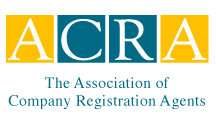The British PM had a meeting with his Spanish counterpart earlier his week, and it is believed that during their discussion Starmer ruled out the deal on bilateral working holiday visa deal, EU Helpers reports.
As Forbes explains, the flow of young workers in the UK has stopped and the idea of establishing such visa deals has been pushed away by the authorities.
While hopes increased that a deal on the working holiday visa scheme might be reached after Prime Minister Starmer told his Spanish counterpart that he would consider the proposal, the case is not the same now that such allegations have surfaced.
This is sad news for many youngsters from Spain who were counting on the scheme to reach the UK for work and travel purposes.
The working holiday visas give the right to youngsters from countries that have reached an agreement to work and live in each other’s territories for a limited period.
UK Currently Has Youth Mobility Schemes With 13 Non-EU Countries
At the moment, the UK has a youth mobility scheme with 13 non-EU countries, including New Zealand, Australia, and Japan.
However, the UK does not have any working holiday visa deal with the EU countries, suggesting that the country wants to stay off the single market.
A UK government spokesperson said that they have given a clear answer that they do not want to rejoin the single market or customs or reintroduce freedom of movement. The same stressed that they are not considering a youth mobility scheme.
Data from the United Nations Population Division show that there are 1.2 million Brits residing in the EU, with the largest communities in Spain, Ireland and France.
On the other hand, the number of EU citizens in the UK stands at 3.3 million, with Poles making up the majority.
Even though the government has not yet made an official decision on the scheme, the rejection would significantly impact young people.
Under the Youth Mobility Scheme, individuals aged 18 to 30 from countries that have an agreement with the UK can stay in the territory of the latter for up to two years.
During this period, those under the Youth Mobility Scheme can study for some courses, work in most jobs, and be self-employed or set up a company.
In contrast, they are not permitted to work as a professional sportsperson, extend their stay (unless they are from Australia, Canada, or New Zealand), get public funds, and bring family members to the UK on their application.








